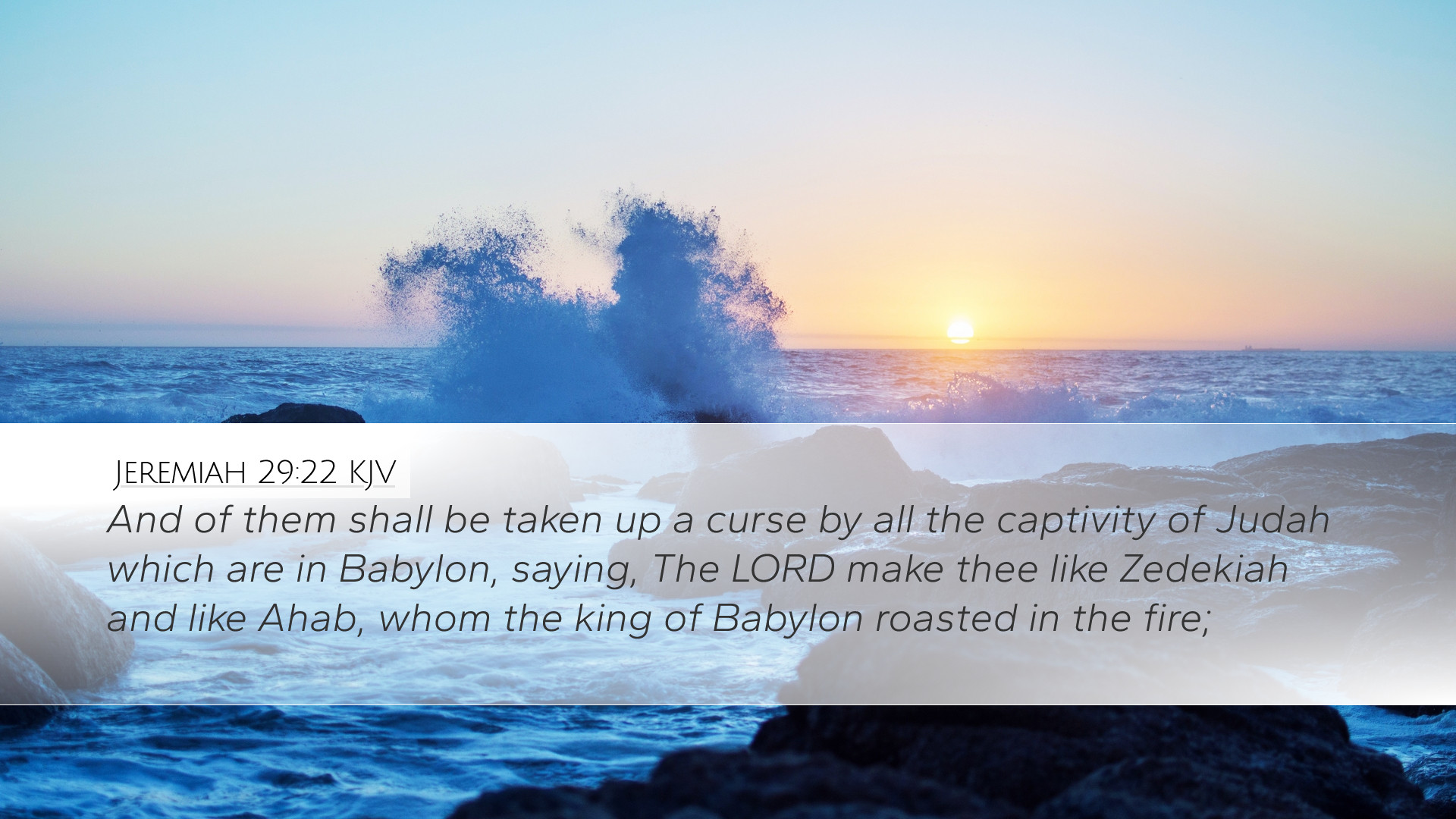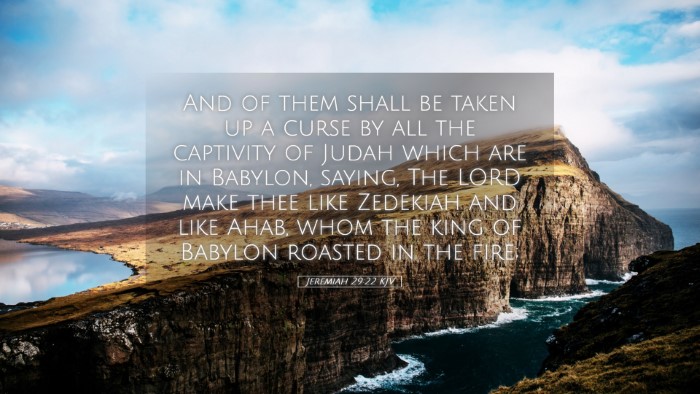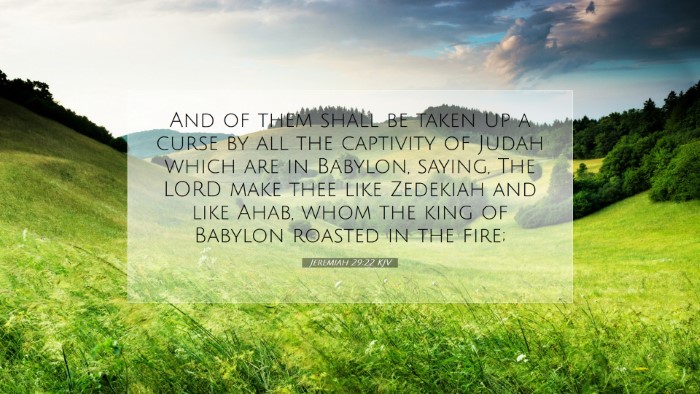Commentary on Jeremiah 29:22
Jeremiah 29:22 reads:
“And of them shall be taken up a curse by all the captivity of Judah which are in Babylon, saying, The Lord make thee like Zedekiah and like Ahab, whom the king of Babylon roasted in the fire.”
This verse reveals significant insights into the fate of certain individuals during the Babylonian captivity, underscoring divine judgment and the consequences of false prophecies. Public domain commentaries provide profound reflections on this verse, which we will explore in detail.
Contextual Background
The context of this passage is pivotal for understanding its meaning. The prophet Jeremiah had been tasked with delivering messages of warning, hope, and judgment to the people of Judah as they faced the consequences of their disobedience. In the preceding chapters, the Israelites were taken captive to Babylon, and many were seeking prophetic counsel regarding their situation.
Key Themes and Insights
-
The Curse of Zedekiah and Ahab:
Jeremiah references Zedekiah and Ahab as examples of judgment and devastation. Both were kings who led Israel into greater sin and were ultimately punished. Matthew Henry notes that these figures exemplify the destructive consequences of rebellion against God and serve as warnings to those who endure repercussions for their unfaithfulness.
-
False Prophets:
In this context, Jeremiah is contrasting the messages of true prophets (like himself) against those of false prophets. Albert Barnes highlights that the curse being invoked against the false prophets serves as a serious admonition; they will be a reminder of God's wrath against those who mislead His people.
-
Divine Judgment:
Both Zedekiah and Ahab faced severe penalties for their choices, serving as a mirror to the fate of the captives. Adam Clarke describes this as a reflection on God’s character: He is just and punishes those who lead others astray. The invocation of these names illustrates the seriousness of aligning oneself with false doctrine.
-
The Consequences of Sin:
The verse emphasizes that those captured in Babylon would be aware of the historical context of their judgment. The lamentation that they carry forth is a testament to the communal consequences of individual sin, a theme echoed in biblical teaching. In studying this verse, pastors and theologians are reminded that the effects of sin ripple through communities.
Theological Implications
This verse poses important theological questions about the nature of God’s judgment and mercy. It emphasizes that God's justice is unwavering and that those who lead others astray will face dire consequences. The invocation of a curse not only signifies the severity of the punishment but also reflects the powerful consequences of prophetic words and leadership roles.
Pastoral Applications
For pastors and leaders today, this passage serves as a stern reminder of the weighty responsibility that comes with teaching and guiding. The legacy of Zedekiah and Ahab reflects the potential outcomes of leading a congregation away from God’s will:
- Accountability: Leaders must be aware of their influence, understanding that leading others astray can unleash spiritual ramifications not only for themselves but also for their community.
- Sound Doctrine: A commitment to true biblical teachings strengthens the community. It is a call to diligence in studying scripture to ensure that the message conveyed aligns with God’s truth.
- Repentance and Restoration: The possibility of forgiveness even in the midst of judgment offers hope. Understanding God’s mercy can lead to transformative change for both leaders and congregants.
Conclusion
Jeremiah 29:22 encapsulates profound themes of judgment, the consequences of false teachings, and the historical examples of Zedekiah and Ahab. Through an exploration of this text, believers gain insights into the seriousness of fidelity to God’s word and the communal nature of sin. The reflections offered by public domain commentaries enhance our understanding and provoke deeper contemplation on the responsibilities held by both leaders and laypeople in their spiritual journey.


